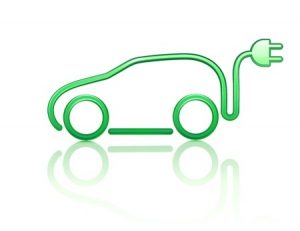The Future of Driving Is Electric

Peter Valdes-Dapena (@peterdrives) reported yesterday that the end is coming for petrol-powered verhicles. “A number of countries around the world are looking to move away from fuel-burning automobiles. India, France, Britain and Norway all want to abandon gas and diesel cars in favor of cleaner vehicles. Even in Germany, the country that literally invented the internal combustion car, there is talk among politicians about eventually doing away with them.”
The article, on CNN Tech [link], is (ahem!) electrifying! It shows a number of concept cars from the likes of Mercedes, Honda, Volkswagen, and BMW — with a video to whet your appetite for what’s coming down the road. Of course, Valdes-Dapena accurately notes that no one is going to replace your gasoline machine immediately. He notes, “None of this means the rumble of piston-power will be gone overnight. Or even over the next decade. The transition to electric cars will take many years and will involve a slow transition.”
Nonetheless, I have been tracking automotive industry-changing trends for some time:
… Tesla has announced that the first mass-market Model 3 is moving toward a full-scale production [link]
… Volvo has pledged that they will cease manufacturing of combustion engine-only vehicles by 2019 [link]
… Sherisse Pham (@Sherisse) of CNN Money reports that “China wants to ban gas and diesel cars” completely (date not set) [link]
… And, right now, European car enthusiasts are hot about electric cars. Writes Jonathan M. Gitlin (@drgitlin): “Electric cars all the rage at Frankfurt Auto Show, but we can’t drive them yet.” [link]
Moves such as these are likely to accelerate the transition of the entire industry away from internal combustion and toward fully electric and hybrid vehicles. Ever heard of Amara’s Law? It goes like this: “We tend to overestimate the effect of a technology in the short run and underestimate the effect in the long run.” The source is Roy Amara, past president of The Institute for the Future [link].
Thinking about this in terms of all those vehicles powered by petrol, it seems to me that it is quite possible that (as excited as we may be) we can’t today fully imagine what the world will be riding on in 10-20 years time. I actually show video clips of the 1960s cartoon series, “The Jetsons”, to awake some audiences to the distinct probability of a future far different from what it is today [link]. And, yes, I quite grasp the irony of showing a video clip made almost sixty years ago to demonstrate dramatic change in the future.
 The question I submit to the worldwide automotive industry is this: are you going to realize the irreversible trends and convert the industry into one that provides “smart transportation”? I say that for a simple reason. Think about the era of the stagecoach. How many of the companies that made those coaches became pioneers in the field of petrol-powered transportation? The time to begin foresensing the shape of transportation is at hand.
The question I submit to the worldwide automotive industry is this: are you going to realize the irreversible trends and convert the industry into one that provides “smart transportation”? I say that for a simple reason. Think about the era of the stagecoach. How many of the companies that made those coaches became pioneers in the field of petrol-powered transportation? The time to begin foresensing the shape of transportation is at hand.
What Tesla, Volvo, and several others represent are powerful examples of what leading with foresense looks like. (My third, quick-reading e-book is all about that [link to PDF].)
The notion of getting out in front of change and using it as a catalyst for reorienting, first, your company and, eventually, an entire industry may seem daunting; but it is absolutely essential to leadership. Being an actor in the shaping of a new order sets the stage for shaping things in a way that could fuel competitive advantage as well as progress.
The automotive industry is not alone in being put on the spot by such transformative futures, and it will indeed pose a formidable challenge to countless leaders in the coming weeks, months and years. That is why we at The Nextsensing Project feel such challenges will define the near-term leadership context and why we believe getting to next represents a big opportunity for many organizations.
Trust Peter Drucker on this: “The relevant question is not simply what shall we do tomorrow, but rather what shall we do today in order to get ready for tomorrow.”
 Joseph Pistrui (@nextsensing) is Professor of Entrepreneurial Management at IE Business School in Madrid. He also leads the global Nextsensing Project, which he founded in 2012.
Joseph Pistrui (@nextsensing) is Professor of Entrepreneurial Management at IE Business School in Madrid. He also leads the global Nextsensing Project, which he founded in 2012.
